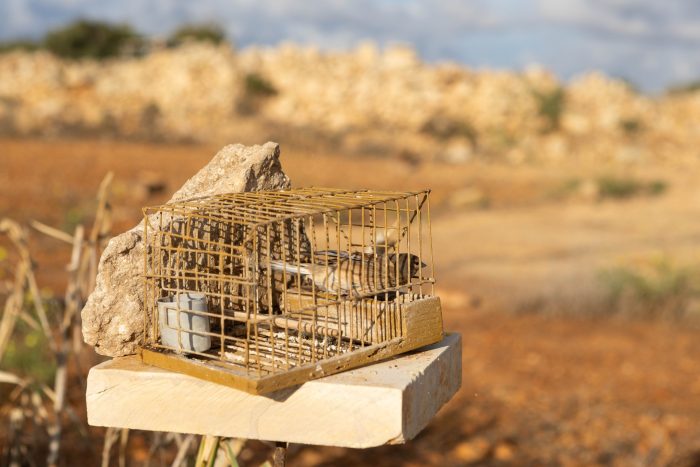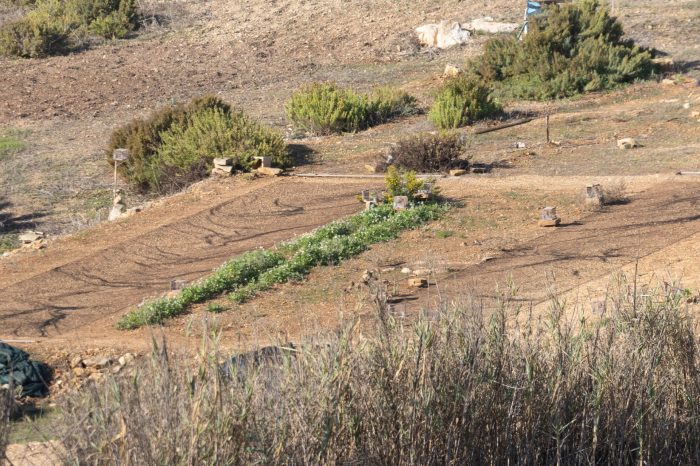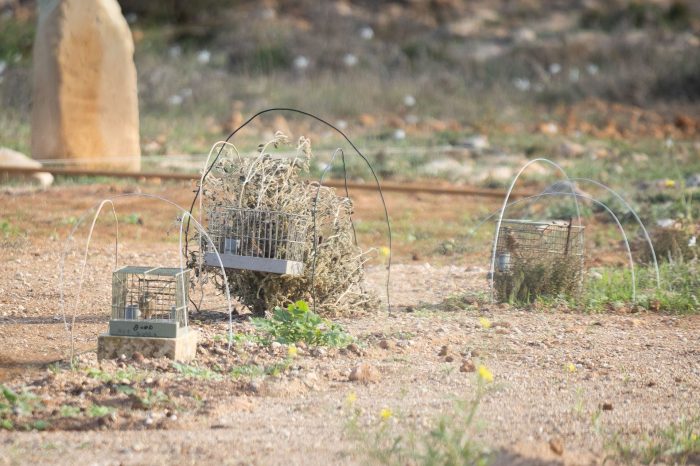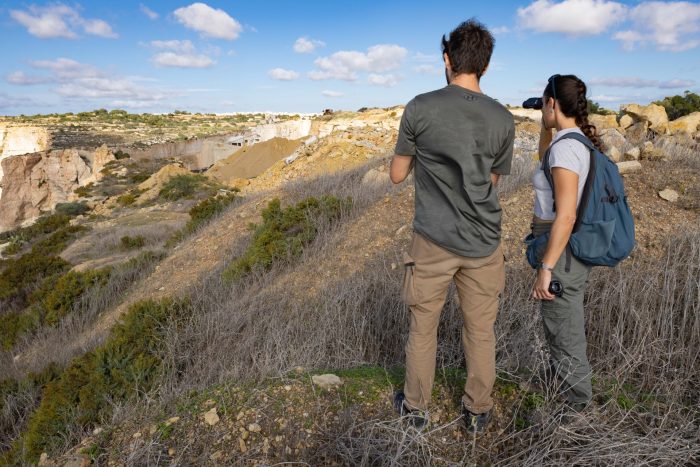Malta has once again reopened the trapping season for finches, golden plovers and song thrushes, directly challenging the European Court of Justice (ECJ) and the European Commission. Despite two ECJ rulings confirming that trapping breaches EU law, the Maltese government continues to allow widespread bird capture under the false pretext of “research”.
This year, 2,932 finch trapping sites and 1,641 sites for Golden Plovers and Song Thrushes have been authorised, an increase of 177 sites compared to last year. The government claims finch trapping is being permitted for scientific study, yet evidence from previous years shows that frankly all trappers engage in this activity illegally, keeping the birds in cages instead of releasing them.
BirdLife Malta has repeatedly provided evidence to the European Commission proving that the so-called research season is a cover for illegal trapping. Last year, the organisation published multiple videos showing trappers catching and keeping protected finches, in open breach of EU law.
Field observations during autumn 2023 revealed that an estimated 51,400 finches were illegally trapped under this same derogation in a single season. In the meantime the number of trapping sites registered for use has continued to increase (from 2,616 finch sites in 2023 to 2,932 in 2025), with sites where trappers were even caught red-handed by police illegally trapping and keeping finches in past seasons, still authorised again to ‘research’ finches in subsequent seasons.
With such a high amount of trapping sites being authorised to target finches, the demand for live birds to be used as live decoys has once again fuelled the illegal smuggling of finches. Just last month, authorities intercepted a shipment of finches from Tunisia, believed to be destined for use as live decoys in Malta’s trapping sites. Earlier in August, Italian authorities intercepted the transportation of 2,687 finches at Pozzallo by a Maltese national, just before they were going to be received in Malta.
Meanwhile, enforcement capabilities remain unmatched in contrast with the scale of trapping being permitted. The Environmental Protection Unit (EPU) was operating at minimal capacity over the autumn hunting season with BirdLife Malta field teams struggling to secure police prosecutions against the widespread use of illegal electronic bird callers in the early morning. As in past seasons, the majority of trapping sites across Malta are expected to operate unchecked, with the situation even worse on Gozo with no environmental police in place.
In order to help match up the enforcement lacunae, BirdLife Malta has once again launched the required tools to be available to the public to distinguish between permitted trapping sites and unpermitted trapping sites which can be viewed from a Google Maps link. Anyone encountering illegal trapping, smuggling or possession of finches is encouraged to come forward with information to BirdLife Malta directly or to police on 119.
Finches remain protected under the EU Birds Directive, and the ECJ has twice ruled, in 2018 and 2024, that Malta’s trapping derogations breach this legislation. A recent visit by Minister Clint Camilleri to Brussels to meet the European Commissioner for the Environment has not changed Malta’s legal obligations, and no negotiation or meeting can override EU law or ECJ judgments.
Further controversy emerged when Minister Camilleri, backed by Minister Miriam Dalli, amended the Conservation of Wild Birds Regulations to remove Malta’s association with EURING, the European network for scientific bird ringing, opening the doors for hunting federations to set up bird ringing scheme to continue disguising trapping as some form of research undertaking.
BirdLife Malta has also informed the European Commission of Malta’s continued disregard of the Birds Directive and European rulings, and is expecting an escalation of infringement proceedings in the coming weeks.
You can read the press release in Maltese here.




